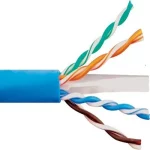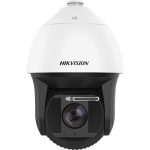Protecting your children from electrical hazards is crucial to ensure their safety and well-being. Young children, in particular, are curious and may not fully understand the dangers associated with electricity. They can easily come into contact with exposed wires, damaged electrical appliances, or outlets, putting them at risk of serious injury or even death. Electrical shocks and burns can have long-lasting physical and emotional consequences for children and their families. By safeguarding your home and educating your children about electrical safety, you not only protect them from potential harm but also foster a sense of responsibility and awareness that they can carry into adulthood. This proactive approach to electrical safety allows you to create a secure environment where your children can explore, learn, and grow without fear of encountering life-threatening hazards.
- Educate your children: Teach your children about the dangers of electricity and how to behave safely around electrical outlets, appliances, and power lines. Explain the basic concepts of electricity and its potential hazards in age-appropriate language.
- Childproof outlets: Use outlet covers or safety caps to protect unused electrical outlets, preventing your children from inserting objects or their fingers into the sockets. Hire a professional Electrical Contractor to install safe outlets.
- Keep cords out of reach: Ensure that electrical cords are kept out of reach of young children, who may be tempted to chew on them or pull on them, potentially causing an electrical hazard.
- Properly store appliances: Keep appliances like hairdryers, toasters, and irons unplugged and stored out of reach when not in use. This can help prevent children from accidentally turning them on or getting burned.
- Use GFCI outlets: Install ground fault circuit interrupters (GFCIs) in areas where water is present, such as bathrooms and kitchens. GFCIs can help prevent electrical shocks by quickly cutting off power when a short circuit is detected.
- Keep liquids away: Teach your children to keep liquids, including drinks, away from electrical appliances and outlets to avoid the risk of electrical shock.
- Inspect cords and appliances: Regularly check cords and appliances for damage or fraying. Replace any damaged items immediately to prevent electrical accidents.
- Supervise young children: Always supervise young children when they are near electrical appliances or outlets. This can help ensure that they are using electrical devices safely and responsibly.
- Establish safe play areas: Set up designated play areas for your children that are free of electrical hazards, such as exposed cords or appliances.
- Learn and teach basic first aid: Learn basic first aid techniques for treating electrical burns and injuries, and teach your children about these procedures as they get older. In the event of an electrical accident, having this knowledge can be crucial in providing immediate care.
Remember that by setting a good example and following these safety tips yourself, you can teach your children the importance of electrical safety and help protect them from potential hazards.





